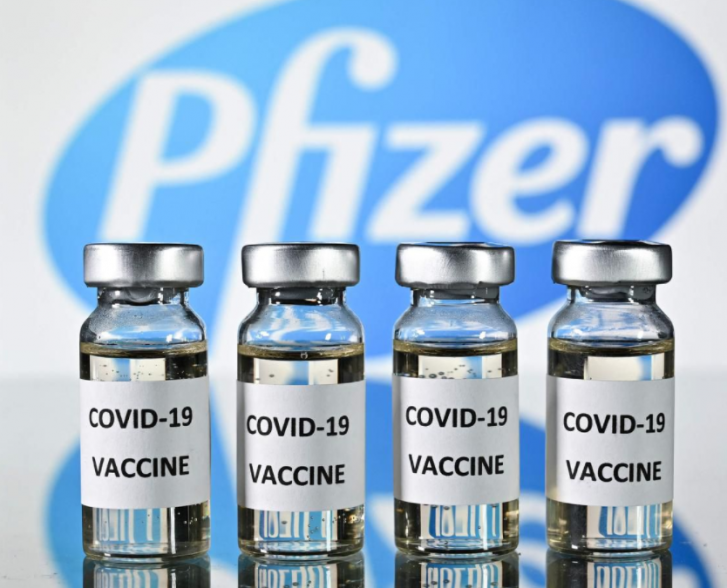A third dose of its COVID-19 vaccine shot could boost protection against the Delta variant, Pfizer claimed in new information released online Wednesday, as debates about booster shots rise.
According to a presentation of the drug giant’s second-quarter earnings posted online, antibodies that targeted Delta were as much as five times higher in people age 18 to 55 after a third dose of the vaccine, and potentially even higher in older adults.
A full study has not been published and the research hasn’t been peer reviewed, or vetted by other scientists.
But the early numbers add fresh fuel to the argument that a third dose of vaccine may eventually be necessary. Many governments and drug companies have turned their attention to the question in recent months, given open questions about how long protection from the vaccine lasts as well as vaccination requirements for travel.
As Delta, a strain much more spreadable than the original COVID version, has taken hold, some companies, including Moderna, have also begun testing a tweaked version of their vaccine targeted specifically at the variants.

In April, Canada’s procurement minister told the Star she was in the midst of negotiating new vaccine contracts to lock down supplies of vaccine booster shots if they’re needed next year.
“We are actively planning for 2022,” Anita Anand said.
Pfizer has also raised its estimate of how much money it expects to make off the vaccine this year by about a quarter. The company now expects to make about $33.5 billion US, based on an estimated 2.1 billion doses expected to delivered this year.
At least one province has gone ahead and begun offering third doses of the regular COVID vaccines for the purpose of travel. Some countries require people to have two shots of the same vaccine, or don’t recognize the AstraZeneca shot made in India.
Quebec announced over the weekend that anyone who received two different vaccines — AstraZeneca and an mRNA shot, for example — could take a third shot “at their own risk” in order to meet travel requirements.
But the approach hasn’t been tested, and health officials say it’s up to the recipient to weigh the pros and cons.
Speaking to reporters in British Columbia on Tuesday, provincial chief medical officer Dr. Bonnie Henry argued there is currently no need for people to get a third dose, and urged patience as the international community works to sort out a global standard for vaccination.
As more information becomes available about the safety and efficacy of different vaccine combinations, she says, she expects countries will start to accept more types of vaccination.
“There are downsides as well. We know there is an increased chance of having adverse reaction after having more doses, particularly if they are closer together.”
Article From: The Star
Author: By Alex BoydCalgary Bureau

